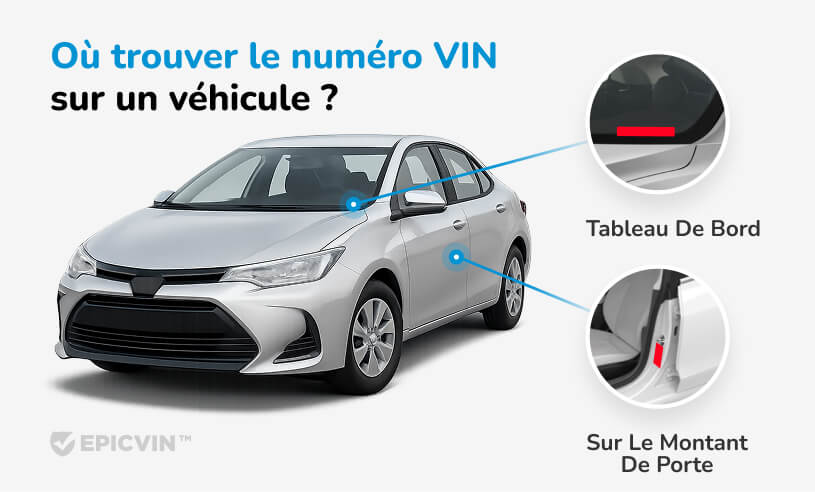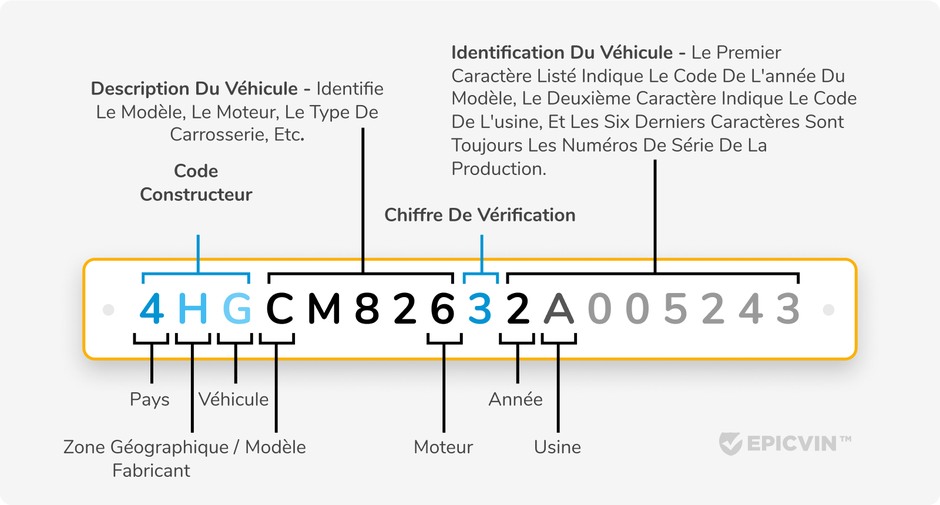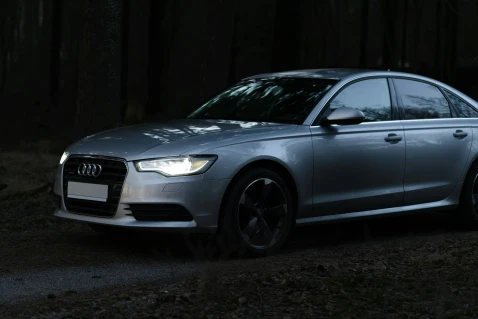
Décodage du numéro d'identification du véhicule (VIN)
Dans cet article, nous avons décrit en détail ce qu'est le code VIN.

Décodeur Plymouth gratuit ! 🚗 Consultez les spécifications, la fiche technique, les rappels et l'historique de base - sans inscription. 🛡️✅ Besoin d'informations sur les accidents, le kilométrage, le titre ? Passez à la version premium en un clic.
À la recherche du VIN ?
Voici où vous le trouverez :

Le Plymouth numero de serie ou numéro d'identification véhicule est devenu obligatoire en 1981 selon les normes de l'Institut ISO. Ce VIN de 17 caractères révèle des spécifications cruciales, les rappels et les données d'historique. Notre décodeur VIN transforme instantanément ces chiffres du numéro d'identification véhicule en informations exploitables avec notre fonction decode vin Plymouth.
Decoding your Plymouth VIN number takes seconds with our specialized tool.

Le Plymouth numero de serie de votre voiture apparaît à plusieurs emplacements à des fins de vérification véhicule. Vous pouvez vérifier numéro châssis gratuit à ces emplacements.
| Risque Clé | Impact sur les Acheteurs | Mesures d'Atténuation |
|---|---|---|
| Risque de Vol | Les anciens modèles Plymouth berline et 2-portes sans immobiliseurs moteur sont volés 11 % plus souvent que les Honda de même âge (NICB 2024). | Installez un coupe-circuit caché ou un immobiliseur après-vente. |
| Rappels de Sécurité Non Réparés | 14,6 % des numéros VIN actifs portent au moins un rappel ouvert (NHTSA 2025). | Effectuez une vérification VIN, réservez une visite chez le concessionnaire pour la réparation gratuite. |
| Dépréciation dans le Temps | Les valeurs moyennes Plymouth ont chuté de 4,3 % en 2024, tandis que les Prowler impeccables ont gagné 12 % (Hagerty). | Choisissez des finitions spécialisées, conservez les pièces OEM et les dossiers d'entretien. |
| Fraude au Retour de Compteur | Les voitures Dodge et véhicules Plymouth >20 ans montrent un taux de retour de 1 sur 15 (Carfax 2024). | Vérifiez le kilométrage contre la chaîne complète d'étiquettes DMV via EpicVIN. |
| Historique d'Inondation ou de Récupération Caché | 18 % des voitures aux enchères en 2024 portaient des titres antérieurs d'eau ou de perte totale (IAAI/Copart). | Scrutez le VIN pour les conversions de marque et commandez une vérification d'inondation EpicVIN. |
Comment minimiser les risques : Vérifiez l'historique VIN via EpicVIN, confirmez le kilométrage contre les titres, recherchez les marques d'inondation et fermez rapidement les campagnes de rappel ouvertes.
| Problème | Modèles Affectés, Symptômes, Coût Moyen de Réparation |
|---|---|
| Mode Dégradé Transmission | Voyager/Grand Voyager 1996-2000 (65k-120k mi) ; blocage soudain en 2e vitesse, code de défaut tableau de bord P0700 ; ≈ 1 800 $ moteur reconstruit. |
| Fuite Joint de Culasse | Neon & Breeze 1995-1999 2.0L SOHC (80k-150k mi) ; mélange huile/liquide refroidissement, fumée blanche du moteur ; ≈ 1 450 $ pièces et main-d'œuvre. |
| Panne Pompe à Carburant | Modèles basés Plymouth Barracuda & Dodge Charger 1997-2001 (70k-110k mi) ; démarrage difficile, perte de puissance ; ≈ 720 $ remplacement module. |

Chaque caractère du numéro unique de votre véhicule raconte une histoire spécifique. Voici le format VIN standard, révélant les caractéristiques de production et spécifications techniques :
Il y a quelques autres détails que les propriétaires et acheteurs de Plymouth Fury devraient connaître :
Voici comment notre outil interprète un VIN échantillon (3P3AA46K9RT212493) :
| Symboles | Échantillon | Ce Qu'il Révèle |
|---|---|---|
| 1 | 3 | Les États-Unis comme pays d'origine |
| 2 | P | Plymouth comme constructeur |
| 3 | 3 | Type de véhicule passager |
| 4-8 | AA46K | Carrosserie hardtop 2-portes, moteur, système de retenue, ligne de voiture et code de classe de prix |
| 9 | 9 | Chiffre de contrôle pour validation |
| 10 | R | Désignation d'année modèle |
| 11 | T | Emplacement usine d'assemblage |
| 12-17 | 212493 | Numéro de séquence véhicule individuel |
Année 1993
Marque Plymouth
Modèle Sundance
Type de carburant
Moteur 2.2L In-Line
Fabriqué en USA
Le décodeur VIN Plymouth révèle des données complètes au-delà des spécifications de base. Notre liste option Plymouth vin comprend toutes les caractéristiques d'équipement.
Nos archives contiennent plus de 4 millions de photos d'enchères Plymouth — un clic montre une chronologie complète de récupération.Alex Black, CMO, EpicVIN
Vérifiez le tableau de bord, cadre de porte conducteur, moteur ou documents officiels.
Les modèles Valiant et Dart pré-1981 utilisaient des séquences plus courtes avant les exigences de standardisation.
Oui, notre base de données inclut plus de 4 millions d'images d'enchères et d'enregistrements d'offres
Les voitures Dart de plus de 20 ans montrent des taux de retour de 1 sur 15 selon les données de l'industrie.
La conformité d'importation varie ; vérifiez les normes d'émissions d'année spécifique pour votre unité sur le site officiel
La marque a été discontinuée en 2001, rendant la production 2002 inexistante sur toute page.
Contactez les agences municipales d'origine ou utilisez les dossiers d'historique de flotte EpicVIN pour vérification. Par exemple, les variantes Dodge Polara utilisaient des plages VIN spécifiques pour l'identification de flotte.
NHTSA maintient les bases de données de rappel indépendamment du statut de discontinuation de marque pour toutes les unités.
Les positions de code moteur indiquent typiquement le type de transmission dans la section VDS pour analyse.
Les mesures antivol sont implémentées sur certaines configurations haute performance et premium trouvées sur des variantes sélectionnées basées Chrysler Newport.
Les VIN standard exigent exactement 17 caractères ; les séquences incomplètes indiquent des problèmes potentiels avec la vérification. La police utilisait des plages VIN spécifiques pour l'identification de flotte, tandis que les applications taxi recevaient des numéros désignés à des fins de suivi municipal.
Découvrez des conseils d'experts, des astuces et des informations sur l'achat et l'entretien de véhicules d'occasion.

Dans cet article, nous avons décrit en détail ce qu'est le code VIN.

Une explication détaillée des voitures d'occasion certifiées et de l'intérêt d...

Notre équipe vous parlera des marques de voitures de luxe